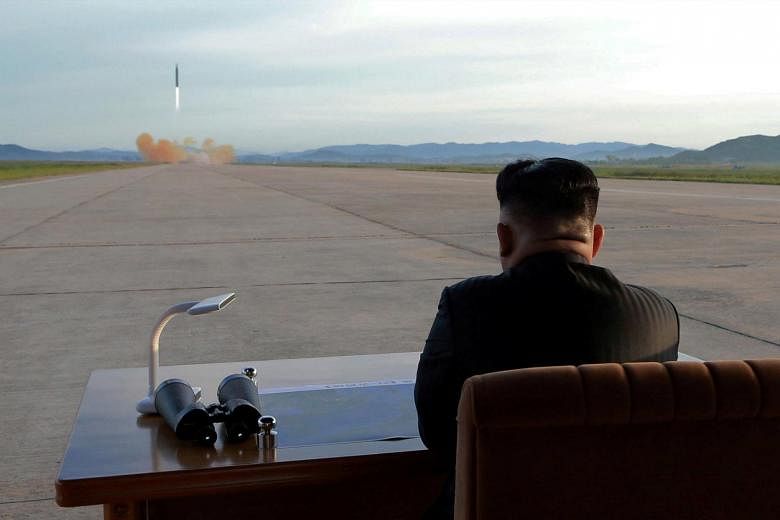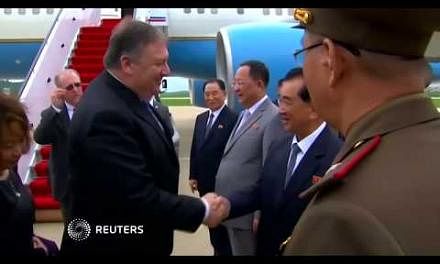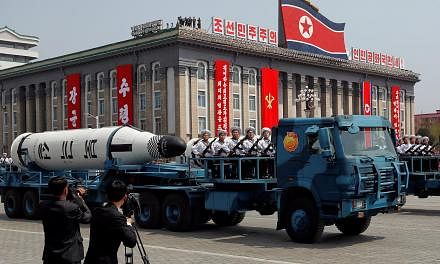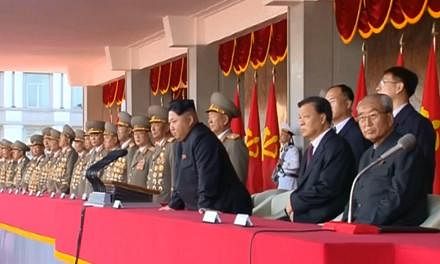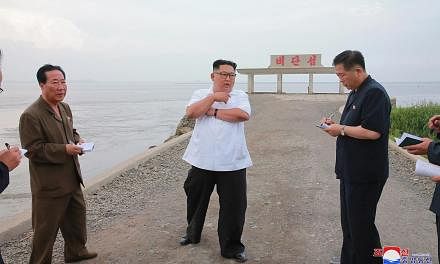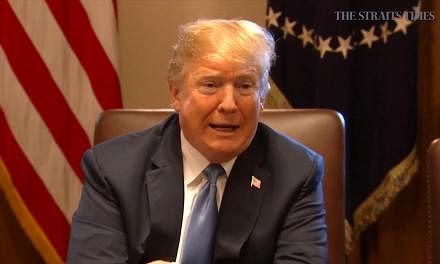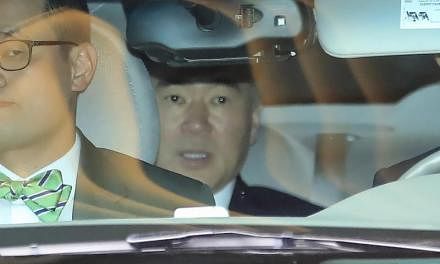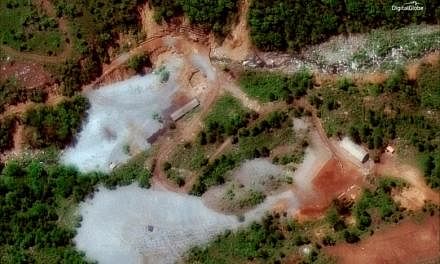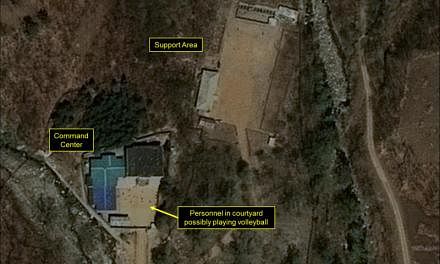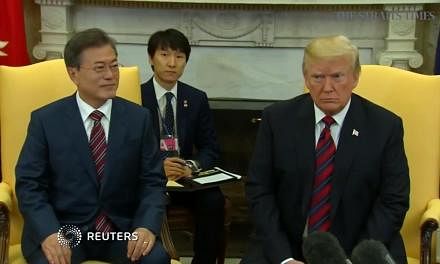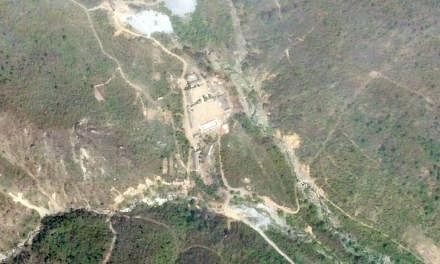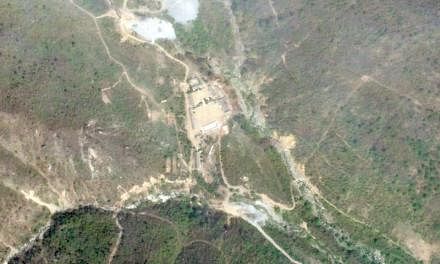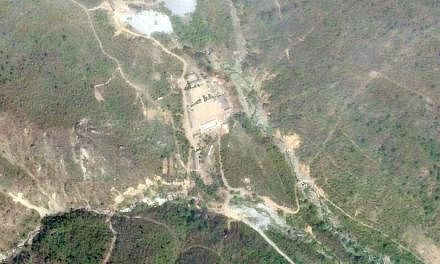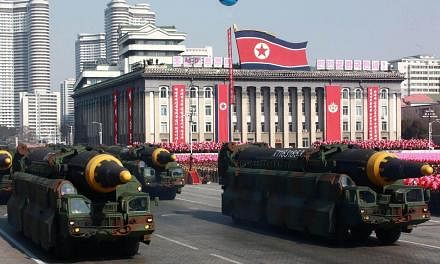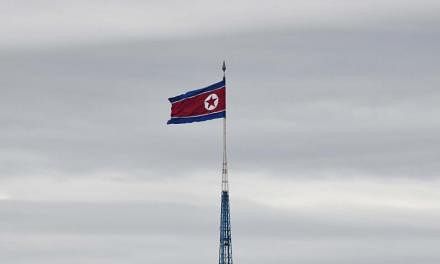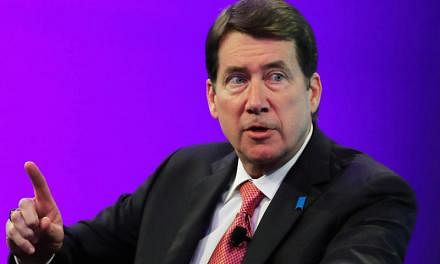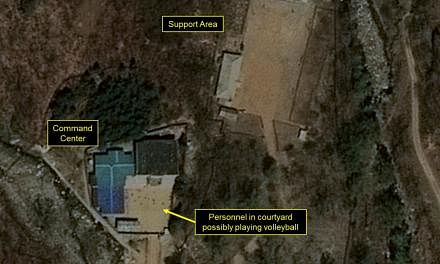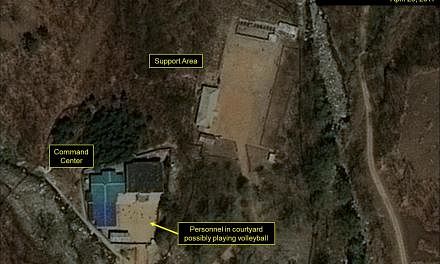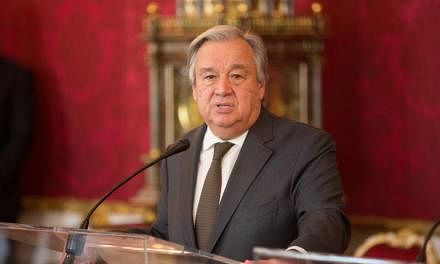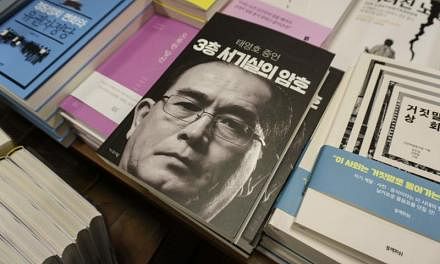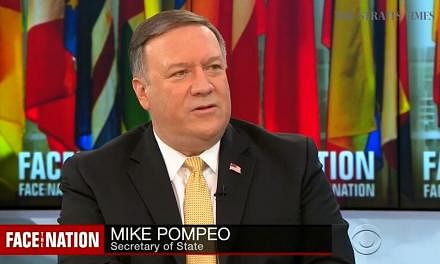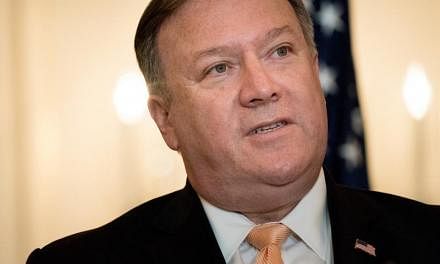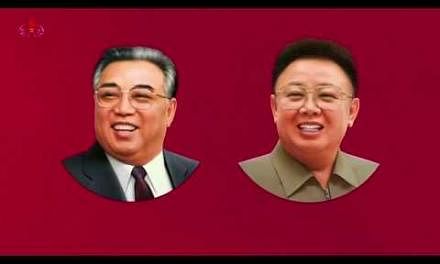SEOUL (Reuters) - South Korea expects North Korea to engage in more provocative action next month to coincide with the anniversary of the founding of its communist party and China's all-important 19th party congress.
In a meeting with President Moon Jae In on Thursday (Sept 28), national security adviser Chung Eui Yong said he expected Pyongyang to act around Oct 10 and 18, but gave no details. China's 19th party congress, which will see Chinese President Xi Jinping unveiling a new leadership, starts on Oct 18.
"(Chung's report) also said there are worries over military conflict being sparked by accidental incidents," said Park Wan Ju, lawmaker and head spokesman of the ruling Democratic Party.
"The president said the United States speaks of military and diplomatic options, but South Korea can't go through war again." Tensions on the Korean peninsula have escalated in recent weeks as North Korea's leader Kim Jong Un and U.S. President Donald Trump exchange bellicose threats and insults over the North's nuclear and missile development programme.
The North has accused Trump of declaring war after he warned Kim's regime would not last if he persisted in threatening the United States and its allies, having earlier warned North Korea would be totally destroyed in such an event.
Pyongyang conducted its sixth and largest nuclear test on Sept 3 and has launched dozens of missiles this year as it accelerates a programme aimed at enabling it to target the United States with a nuclear-tipped missile.
North Korea has threatened to test a hydrogen bomb over the Pacific Ocean and its foreign minister Ri Yong Ho said Monday: "Since the United States declared war on our country, we will have every right to make countermeasures, including the right to shoot down United States strategic bombers even when they are not inside the airspace border of our country."
His comments came after US Air Force B-1B Lancer bombers escorted by fighters flew in international airspace over waters east of North Korea last Saturday in a show of force the Pentagon said indicated the range of military options available to Trump.
The United States and South Korea are technically still at war with North Korea because the 1950-53 Korean conflict ended with a truce and not a peace treaty.
Park said President Moon told the meeting that Washington and Seoul agreed that pressure needed to be applied to North Korea, with the door to talks still open.
Chung said the United States and South Korea had agreed on the rotational deployment of US strategic assets to South Korea, possibly as soon as year-end, said lawmakers at the meeting.
What kind of assets would be rotated was not specified.
Moon added it was inappropriate to discuss the deployment of nuclear weapons in South Korea, the lawmakers said.
The president said he had personally been against the deployment of U.S. Terminal High Altitude Area Defence (Thaad) system in South Korea, but the decision was made as North Korea's missile capabilities were quickly improving.
Regarding China's vehement opposition to the deployment of Thaad, Moon said "visible achievements" were to be expected soon as "the issue was reaching the end", quoted by the lawmakers.
Beijing opposes Thaad because it believes its powerful radar could be used to look inside its territory. South Korea and the United States have said it is only to curb North Korea's missile threats.
